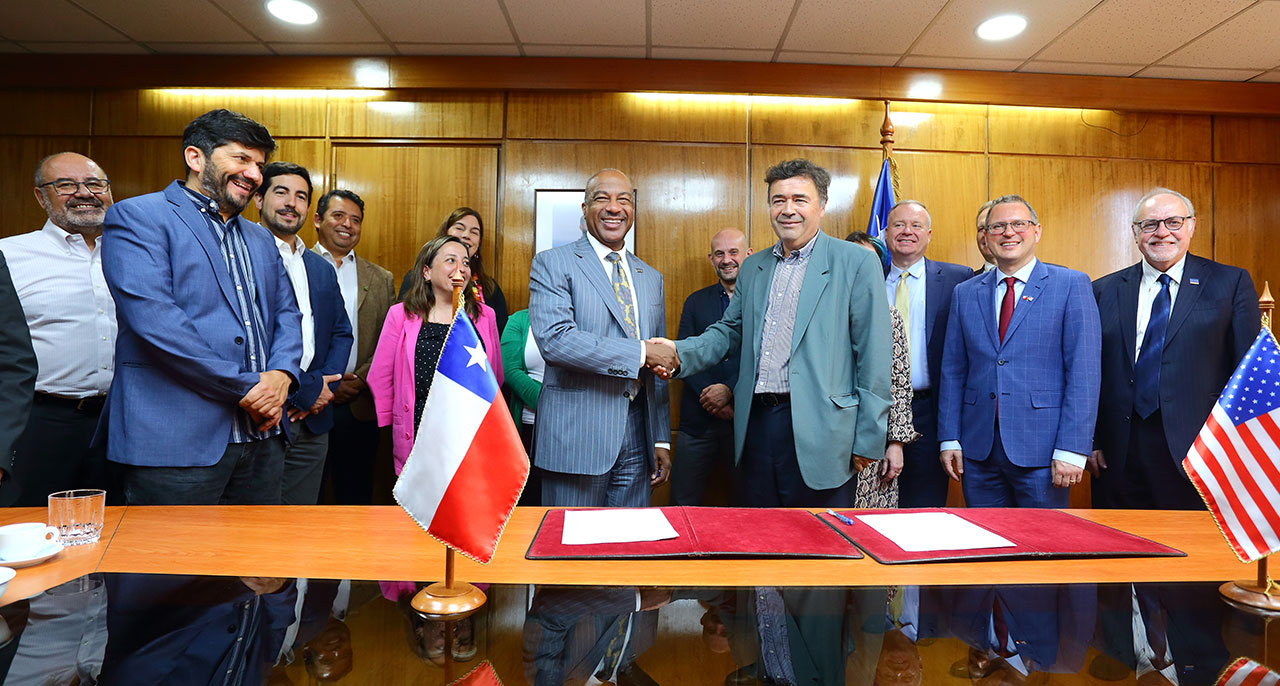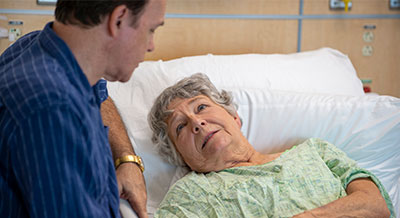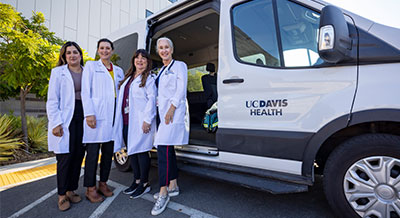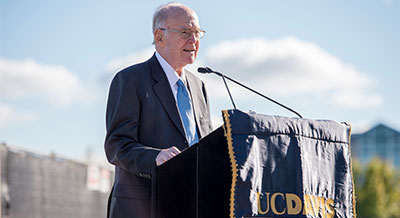From underserved populations in Kenya to aging caregivers in Vietnam and researchers in Chile, the Betty Irene Moore School of Nursing’s global collaborations leverage UC Davis expertise and community connection to make real impact.
“We cannot solve the world’s problems alone. We need partnerships, especially in places where we share common challenges and goals,” says School of Nursing Dean Stephen Cavanagh.
Expanding on UC Davis’ ties to Chile that date back to the 1960s, a delegation, led by UC Davis Chancellor Gary S. May, visited the South American country in January. Cavanagh and Esteban Valenzuela, minister of agriculture of Chile, connected on the shared challenges of rural health care in Chile and California’s Central Valley, which are similar in landscape and population. They are now mapping out ways to collaborate on educational and scientific efforts.
“We can advise on models of rural care and what has been successful in our efforts,” Cavanagh says. “This relationship could also open avenues for our nurse practitioner students to experience rural health care rotations in Chile.”
HEART for Kenya
Across the globe in Kenya, School of Nursing faculty also work with rural health care providers in how they approach care while creating future opportunities for School of Nursing students. Associate Professor Laura Van Auker, a nurse practitioner, has served in rural parts of the country for nearly 20 years.
This year Van Auker, along with Cavanagh, school alumni and a dietitian from UC Davis Health, partnered with the University of Nairobi. They worked with Health Education Africa Resource Team (HEART) to pilot primary care camps to care for HIV+ women and children. They also developed collaborations with nursing and science departments at the University of Nairobi to promote a team-based community care model through combined medical camps.
“Collaborating with our colleagues in Kenya, we expand globally, sharing a new sustainable health care model using nurse practitioners partnered with Kenyan health care providers and expanding access to care,” Van Auker says. “It is a rich partnership for all.”
Caregivers in Vietnam
Vietnam is on the threshold of a dramatic aging of the population. To address these challenges, there is a growing need for support systems and resources for family caregivers, a phenomenon which is the foundation of the Family Caregiving Institute at the Betty Irene Moore School of Nursing.
The institute’s Associate Director for Research Ladson Hinton and leaders met in Sacramento with a delegation from Vietnam National Geriatric Hospital, the first and only hospital in the country specifically for the elderly. A primary goal of the visit to UC Davis was to develop additional collaborations with the School of Nursing in research, workforce development and service delivery, to advance care for older adults and family caregivers in Vietnam.
“Our current research in Vietnam is helping to develop community programs to support family caregivers of persons living with dementia and to strengthen research capacity,” Hinton explains.
Hinton says their research in Vietnam may also have beneficial implications for interventions to support Vietnamese and other family caregivers in the U.S. Cavanagh says these partnerships benefit the school and its international collaborators.
“Our influence is exponentially greater when we partner with colleagues around the world who are working in the same spaces with the same passion to make health care better and more accessible to everyone,” Cavanagh says.






